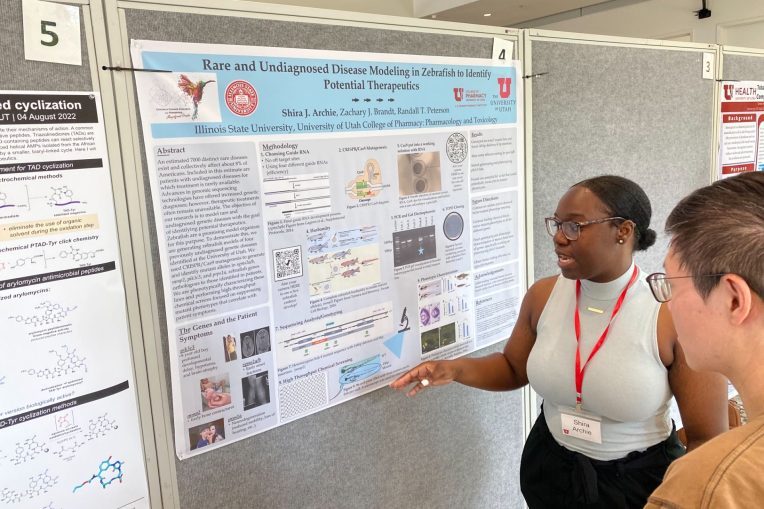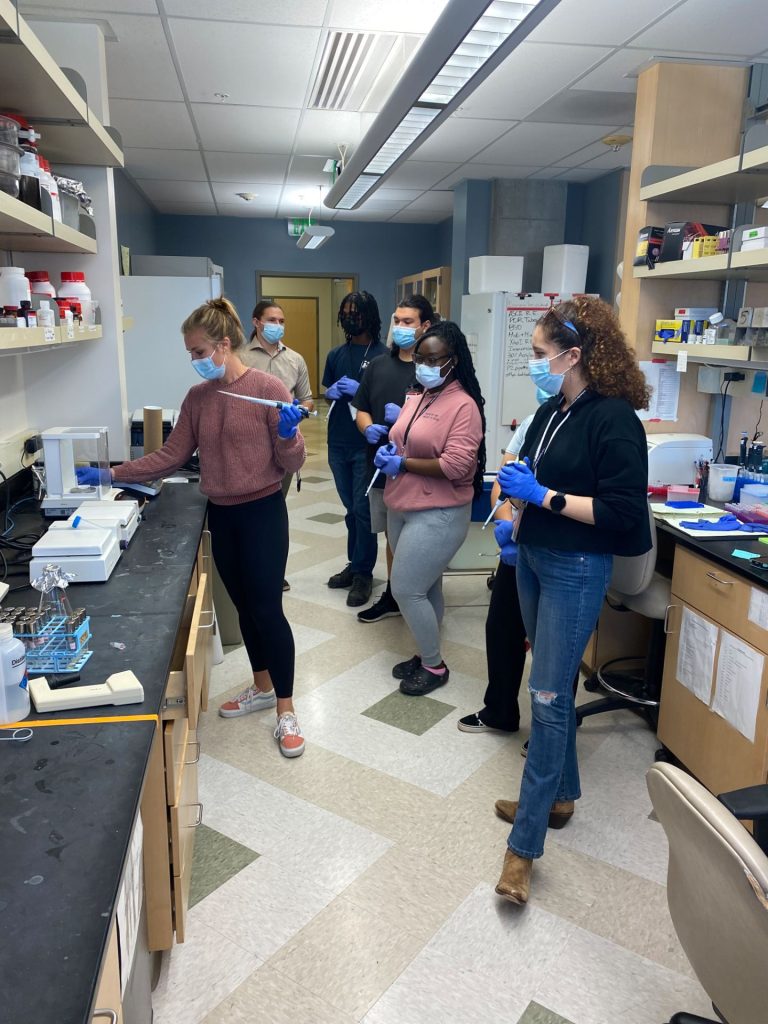When given the choice to conduct cutting edge research close to home or more than a thousand miles away, senior molecular and cellular biology major Shira Archie said, “I didn’t want to be comfortable.”
A Bloomington native, Archie spent the summer studying potential genetic therapeutics for rare, undiagnosed diseases at the University of Utah School of Medicine in Salt Lake City.
Appears In“I just wanted to do something different, and I’m very glad I decided to get out of the box and do this program,” Archie said.
The 10-week Genomic Summer Research for Minorities internship program was composed of students from all over. Archie worked in the Peterson lab housed in the College of Pharmacy under mentors Dr. Randall Peterson and Dr. Zachary Brant.
“I’m happy that I went through an entire, real, medicine-based project that ties back to medicine and diseases,” Archie said.
Archie’s research involved utilizing CRISPR/Cas9 mutagenesis to inject genes from patients with rare, undiagnosed diseases into a one-cell zebrafish embryo. She then genotyped the fish using the polymerase chain reaction (PCR) to observe mutations consistent with the rare, undiagnosed diseases for which they are seeking treatments. Finally, Archie placed fish embryos into trays and administered various experimental treatments to determine if similar genetic therapy could be successful in human patients.
“We’re doing the research so we can help these people even if it’s just one patient with a rare disease,” Archie said. “We’re doing the work, and we’re trying to find therapeutics for them.”
Beyond facilitating research, Archie’s Research Experience for Undergraduates (REU) program also included various workshops and a seminar series. There were opportunities for students to shadow doctors, engage in coding classes, and participate in suturing tutorials. Archie also enjoyed hiking, exploring Salt Lake City, and making new friends and connections that she expects to last a lifetime.
At the end of the program, students attended a research symposium where they presented their research projects. “It helped us communicate science, which is really important,” said Archie.
At Illinois State, Archie is a member of the STEM Alliance organization, which aims to significantly increase the number of graduates who belong to groups that are underrepresented in science, technology, engineering, and mathematics disciplines. Archie is also a mentor in the NexSTEM program. Her mentee, Erinda Aidoo, interned at Yale over the summer.
Before studying gene therapy, Archie researched neurological disorders and muscular dystrophies with Dr. Alysia Vrailas-Mortimer. “I have been doing research my entire time at Illinois State, and I wouldn’t change it for the world,” said Archie.
“Having this deeper understanding of research [with] not only what she did with Dr. Mortimer here, but now, having this opportunity in Utah [allows her] to really see how research plays a role in the future of healthcare,” said Dr. Jeff Helms, Archie’s pre-heath professions advisor.
Archie hopes to merge her passions for research and helping medical patients into a future career.
“Before I went into the program, I didn’t have as much clarity about what I wanted to do,” said Archie. “Coming out of it, it’s a little bit clearer for me.
“I know I want to do something in medicine. I want to talk to patients. I want to help patients. I know that I want to work in underserved and underrepresented communities because that’s really important to me as a minority in STEM. Medicine is definitely the way.”



